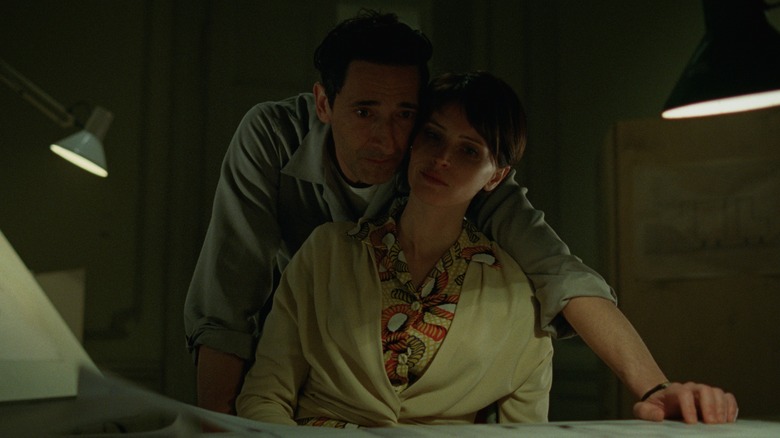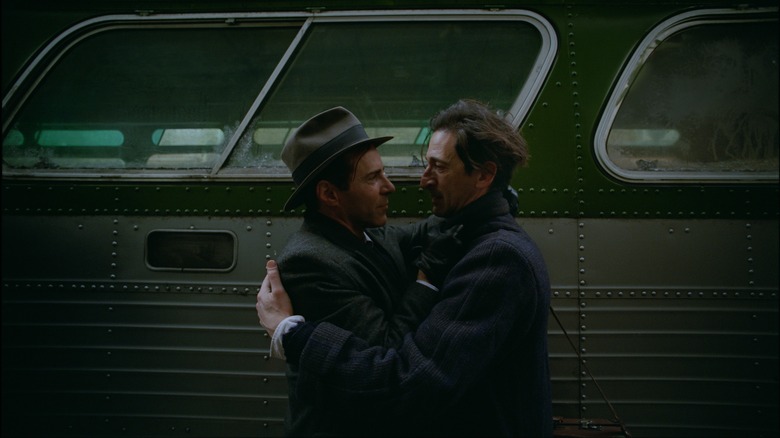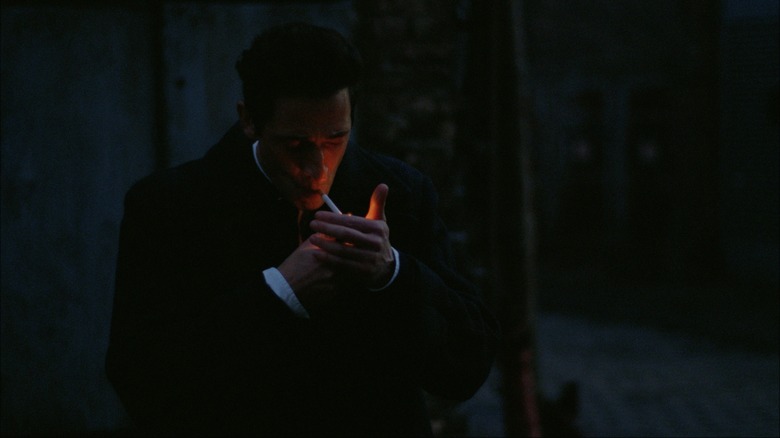The Brutalist Review: Brady Corbet Creates A Dark Vision Of The New American Epic [Venice 2024]
- One of the best performances of Adrien Brody's career
- Devastating take on the American dream
- Some audiences may be turned off by the long run time
There's nothing that says "swing for the fences" like a three hour and 35 minute period drama about the American dream. But this one pays off for Brady Corbet, a director who has long been on the rise with films that caught on with niche audiences but haven't quite broken through to the mainstream. "The Brutalist" should change all that, at least among movie-going circles, with its unflinching take on the American epic and how the values that seemingly inform the myth of the American dream are perverted by the insidious fear of the Other. Adrien Brody puts in arguably the most compelling performance of his career, captivating the audience with a commanding screen presence. A movie of this length might not be an easy sell to casual audiences, but we have a feeling that "The Brutalist" is destined to become a classic.
"The Brutalist" begins in the aftermath of World War II, as the esteemed Brutalist architect László Toth (Brody) starts a new life in the United States, biding his time until his wife Erzsébet (Felicity Jones) and their niece Zsofia (Raffey Cassidy) are able to emigrate from Hungary as well. He bounces around for a while, first staying with a Hungarian cousin who moved to the U.S. before the war, before eventually landing a commission from an eccentric millionaire (a career-best Guy Pearce) to design and build a community center in Doylestown, Pennsylvania. After the chaos of the war and the horrors of the Holocaust, it seems as though László is finally able to move forward with his life. But opportunities that are given through the kindness of strangers are delicate things, easily taken back on a whim. Especially when, in spite of his attempts to contribute to an American community, he and his family are still seen as outsiders, the first to be blamed or suspected when things go wrong.
The dark side of the American dream
The elephant in the room is that "The Brutalist" is a good hour longer than what most people would consider an already relatively lengthy film. Bold choices are made, that's for sure. Yes, it's long, but it's paced well and never drags. It certainly helps that Brady Corbet includes an intermission, something that more directors should consider for longer films, because it really acts as a palate cleanser and gives the audience a nice burst of energy. "The Brutalist" is also divided cleverly. The first part is full of hope and optimism for the future, a sense that László is slowly but surely building something of value in his new country, while the second part sees it all turn to ash in László's mouth. Everyone is so eager to help him and his family, but only on their terms, for as long as it interests them, and never without strings attached. American beneficence is abundant, but remarkably fickle. Newsreel footage about the promise of the country is interspersed throughout the film, juxtaposing the pervasive rot perceived by László and Erzsébet. Europe may be the site of their trauma, but America is where their illusions died.
Aside from these narrative choices that make "The Brutalist" suitably epic in tone, Corbet takes the film in an interesting stylistic direction. He's always been a filmmaker eager to take risks — some of which have paid off, and some of which haven't, as evinced by the mixed reception of some of his previous films — but it seems like the sheer scale of "The Brutalist" focused his creative instincts in a way that makes this by far his most successful. It's clear that he had a very specific vision for this film, and he builds his own twisted version of Americana as seen through a scary funhouse mirror. When we get our first glimpse of the Statue of Liberty, beacon of hope and freedom herself, even she's upside down.
Adrien Brody's best performance to date
But all of this would be for nothing were it not for the utter conviction that Adrien Brody brings to the challenging central role of László. A man who has seen his life's work reduced to metaphorical rubble but remains committed to starting anew, his noble intentions belie an incredibly complex figure. He can be alternately charming and obstinate, ambitious and apathetic, humble and arrogant. His desire to create is at the center of his character, but it is perpetually tinged by his own self-destructive tendencies born out of trauma. László is not always a likable character, a good husband, or a considerate friend, but he's always an engaging figure, and that's thanks to how much Brody pours into this role. Felicity Jones serves as a perfect counterpart as Erzsébet — although she's physically weakened as a result of severe malnutrition during the war, she is the intellectual, emotional, and moral strength of their relationship.
"The Brutalist" is not for the faint of heart — it's a challenging but ultimately incredibly rewarding watch. With the bold direction of Brady Corbet and the intensity of Brody's lead performance, it takes a look at the dark side of 1950s America, a time of immense prosperity and optimism wallpapering over fears and anxieties that would leave a stain on the entire era. This is an exciting new vision of the American epic film, which will no doubt cast a long shadow over cinema for years to come.
"The Brutalist" premiered at the Venice Film Festival on September 1, and is currently seeking U.S. distribution.


